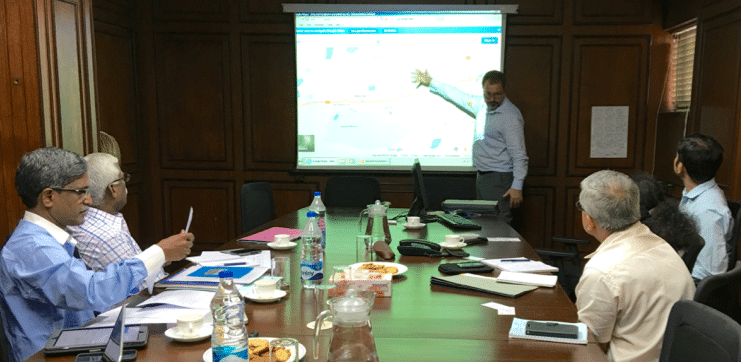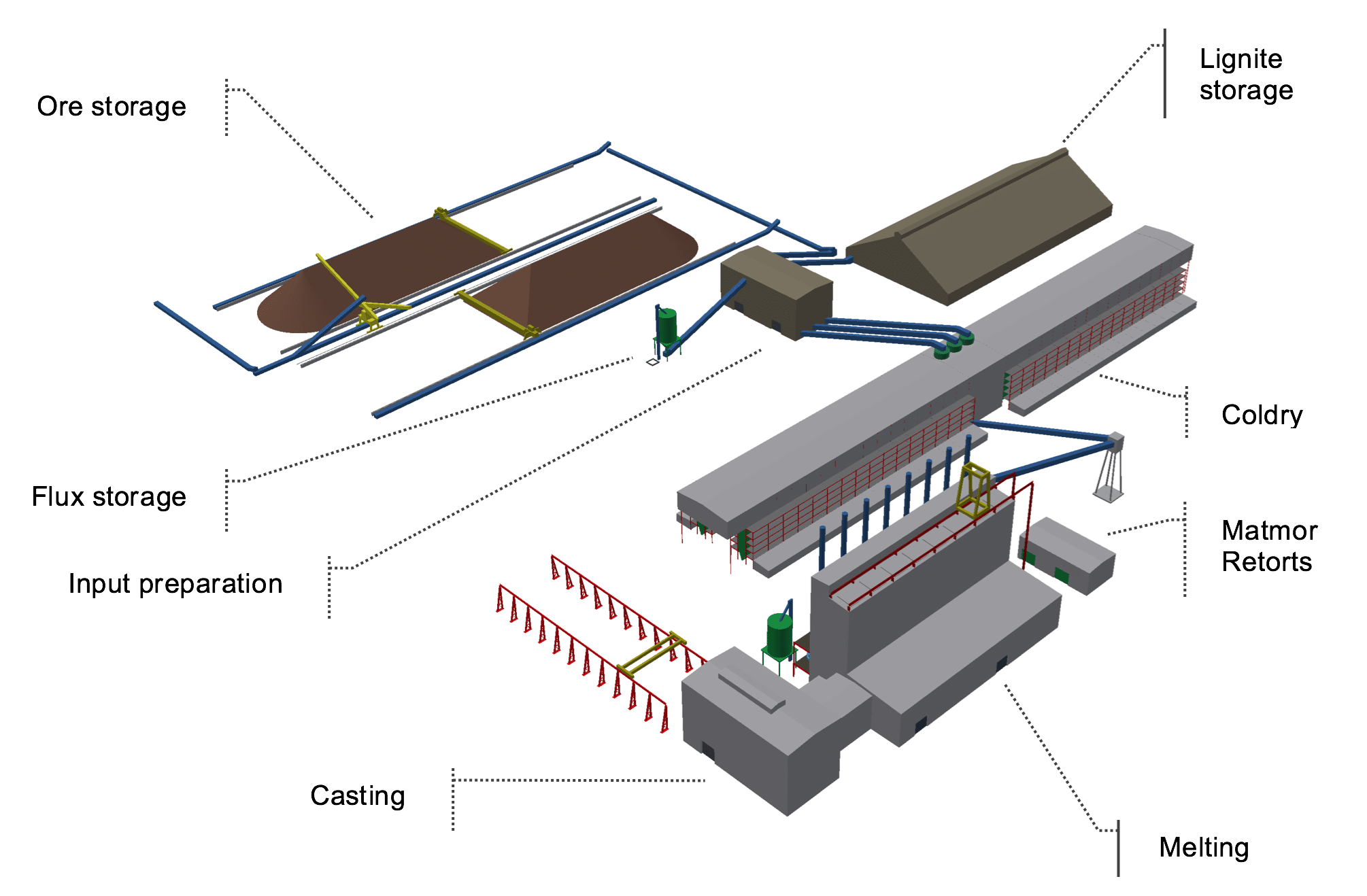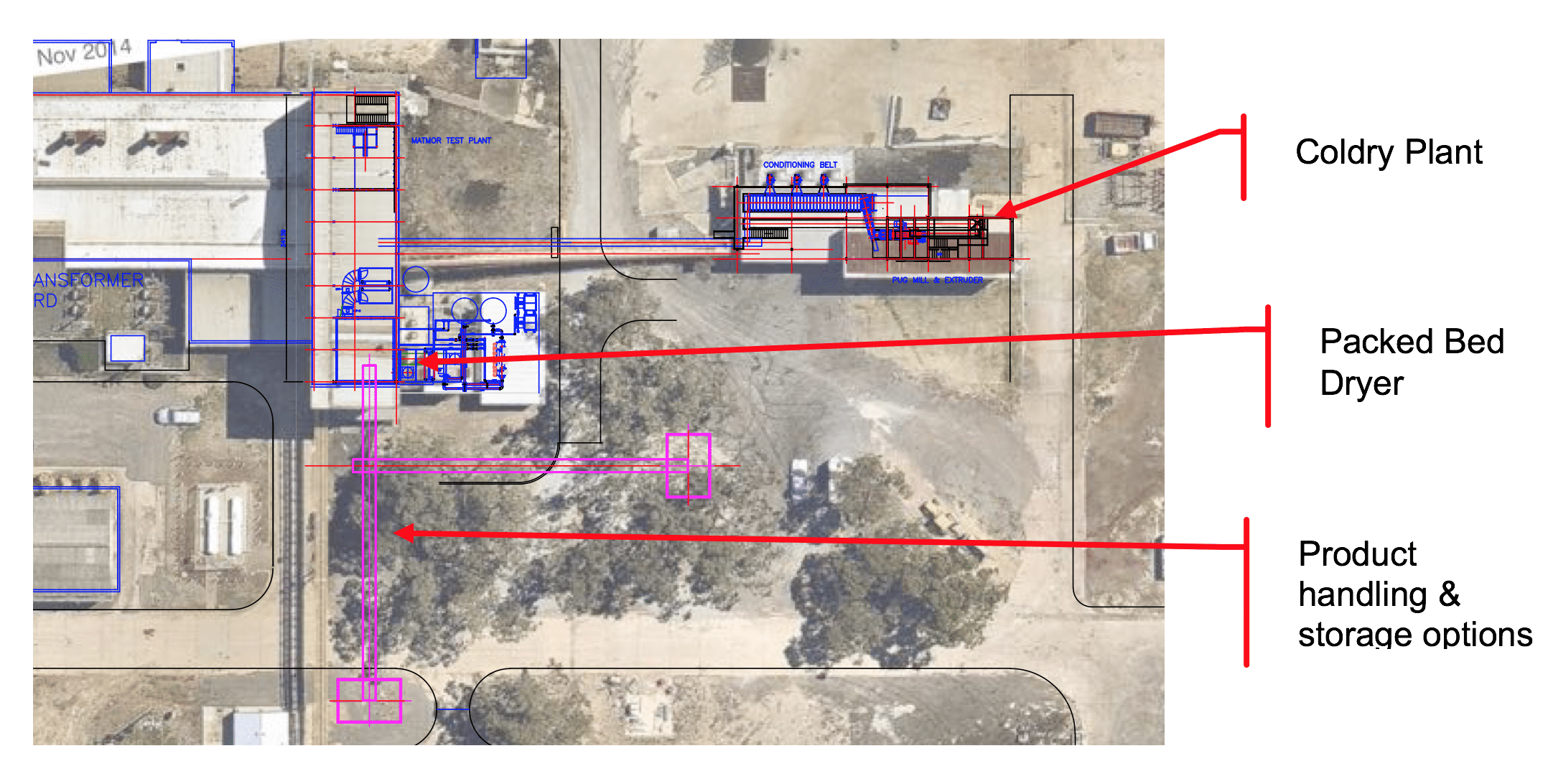Investor News
Shareholder Update
Environmental Clean Technologies Limited (ASX: ESI) (ECT or Company) is pleased to provide the following general update to shareholders.
Topics
- India activity update
- Options Exercise Program update
- Bacchus Marsh High Volume Test Facility
Topic 1: India Activity
Further to our announcements on 8 and 19 February 2016 updating the market on activities in India, the Company is pleased provide a progress update on the Coldry-Matmor project in Neyveli, India. Recently, the project team travelled to Kolkata to work with leading pyro-metallurgical engineering firm M.N. Dastur, advancing its Matmor Technology and the Techno-Economic Feasibility (TEF) Study in support of its India project endeavours, followed by an update briefing for the TEF Working Group (which includes members from NLC and NMDC).
Key points:
- TEF Study advancing and on track
- Indicative commercial scale integrated Coldry-Matmor plant layout under development
- Logistics scoping commenced
The TEF Study, targeted for completion in June 2016, is deliverable under the Tripartite Collaboration Agreement announced on 27 January 2016 and an important precursor to developing capital estimates to an appropriate level necessary to define and trigger financial commitments ahead of project execution.
ECT managing Director Ashley Moore commented “The context of the TEF requirement is important. It sets the vision, allows us to collectively start with the end in mind, then work to fulfil that vision. As previously announced Coldry has been developed to a point where the core design for the demonstration-scale plant is complete, which has allowed us to develop the capital and operational estimates to an appropriate level of accuracy. From a design point of view we are ready to ‘go build’ Coldry. On the other hand, Matmor is currently developed to a semi-continuous, test plant scale, with limited automation. The TEF is about lifting the level of detail around Matmor to arrive at an appropriate view of the commercial potential, underpin the capital and operational estimates and meet the assessment criteria of our partners.”

Key outcomes from the week’s activities included:
- Mass & Energy Balance (MEB): Progressive development and refinement of the MEB calculations. This work informs the process parameters based on current knowledge and covers material flow through the process, kinetic modelling, energy requirements for the plant operation, and thermo-chemical reduction mechanisms. The aim is to support appropriate estimation through to commercial scale which will subsequently be the subject of pilot scale testing of a broad range of hypotheses.
- Process Parameters: the MEB calculations inform the specifications for the physical aspects of the plant design including retort dimensions and structural, piping, electrical and mechanical facets to arrive at appropriate capital estimates that will be subsequently tested and refined through pilot development.
- Technology Comparison: Parameters for a competitive iron making technology comparison have been defined based on recommendations from M.N. Dastur. The minimum reasonable basis for comparison has been identified as 500,000 tonnes per year of crude steel output. Several emerging or established processes have been ruled out by M.N. Dastur on viability grounds, leaving the traditional blast furnace and coal-based DRI processes as meaningful comparisons.
- Indicative Layout: Scoping of an indicative commercial scale Matmor plant layout has commenced (pictured below). Land usage is a priority consideration when planning such projects in India. Further, assuming success at pilot scale, the parties envisage scale up of the process to commercial capacity. As such, a notional 1 million tonne per annum layout has been scoped to understand the land area required to be set aside. This caters for initial pilot activity and provides flexibility for a multi-staged expansion to demonstration scale and beyond, as deemed appropriate. Land area usage is also an important metric in the technology comparison. The Matmor layout shown is approximately 400m by 400m, which is significantly smaller than a blast furnace installation that could require up to 1,000m by 1,000m.

TEF Study Background
On 19 February the Company provided a general update, flagging the convening of the Indian project working group, which set in motion the work plan to deliver the TEF Study for the integrated Coldry-Matmor R&D project in India.
The project working group is led by ECT and consists of representatives from NLC and NMDC and is supported by Thermax (Coldry EPC engineers) and M.N. Dastur (Matmor design engineers).
The objective of the working group is to deliver the TEF, which is an integral requirement of the project development process in terms of appropriately documenting the business case at a commercial scale for the prospective investment of funds for the pre-commercial, integrated Coldry Demonstration and Matmor Pilot.
Performance Payment – YES BANK & GWI
As previously announced, YES BANK and Greenard Willing India (GWI) have worked in concert to support the Company’s endeavours in India, including providing extensive in-country support, stakeholder management and a broad range of corporate advisory functions integral to achieving the recent signing of the agreement with NLC and NMDC.
The agreements with YES BANK and GWI were appropriately structured to strike a balance between service fees and performance incentives. The signing of the Tripartite Collaboration Agreement (announced 27 Jan 2016) was a key milestone objective under their consulting agreements, attracting a $20,000 bonus.
The Company has today lodged an Appendix 3B which included the issue of 1 million fully paid ordinary shares (ESI) at an agreed price of 2¢ each, jointly to YES BANK and GWI in satisfaction of this milestone bonus.
Future performance payments will be due to YES BANK and GWI upon completion of important project roll-out milestones such as the signing of a binding construction contract, practical completion of the construction phase, and following successful commissioning of the plant. These payments are modest in nature, and do not include equity components.
Topic 2: Options Exercise Program
Background
The current Options Exercise Program (the “Program”), being managed by Platinum Road, has raised over $1.5M cash since it was established (announcement 9 January 2015) to stimulate the orderly exercise of the listed ESIOA and ESIOB options. The Program has been responsible for delivering working capital to the Company in addition to satisfying a significant part of the Matmor acquisition under the agreed purchase terms (announcement 4 Dec 2014).
Latest Options Exercise
Today we also welcome the Calleja Group’s conversion of 32,790,370 ESIOB listed options into fully paid ordinary ESI shares, which now brings the total value of options converted to ~$2.7M.
The Calleja Group continue to demonstrate their commitment as a strategic partner and supporter of the development of the Coldry and Matmor technologies.
This strategic relationship is expected to grow as we pursue the upgrades to the Coldry pilot plant at Bacchus Marsh, which will entail ongoing raw coal supply and logistical support by the Calleja Group.
The parties agreed to provide early recognition of a payment trigger in the Matmor asset purchase agreements, and using those proceeds to satisfy the conversion amount. The future milestone relates to the achievement of binding contracts for construction. While that milestone has not yet been achieved, the Company’s confidence in the probability that it will be achieved within the next 12 months means that the Company considers it sensible to support the exercise of the options now, to avoid the future requirement to make a cash payment. These newly converted shares will be held in escrow for a period of 6 months or the completion of the milestone, whichever comes first.
Program Update
As noted in previous announcements, there remains ~$23M of unconverted cash in the listed ESIOA and ESIOB options, which the Company can take advantage of when considering working capital and project financing solutions. The Company will continue to make these the focus of near–term capital raising.
ECT Managing Director, Ashley Moore stated “The potential of this program to support the financing of our projects and working capital always needs to be balanced with optimising long term shareholder value. To date, the Program has provided an important funding source in support of our Coldry and Matmor technology commercialisation efforts, and will continue to be a focus of our ongoing capital raising initiatives. Future incentivisation of the program will continue to be tuned to obtain the best outcomes, taking into account share price, dilution, market appetite and other revenue and funding alternatives.”
As part of the agreed compensation for the Program to date, Platinum Road’s clients and nominees have now been issued options which are detailed, along with the abovementioned issue of ESIOB listed options to the Calleja Group, in the Appendix 3B lodged today.
Topic 3: Bacchus Marsh Pilot Plant - Upgrade to High Volume Test Facility
The Company has previously detailed (19 Feb 2016) the current upgrade program for the Coldry Pilot Plant near Melbourne aimed at enhancing R&D capability.
The requirement for higher testing capacity has been driven by the identification of the need to provide a robust R&D facility that can provide sufficient flexibility and volume of Coldry product to satisfy minimum quantities for end user testing in large test boilers and live generation systems.
Further, the upgrades will be targeted at increasing efficiency and accuracy in the testing of new brown coals with the aim of reducing test program cycle times in the pursuit of new knowledge and intellectual property.
The ‘waste heat’ aspect of the plant is a good example of the type of upgrade being scoped. The Coldry process utilises waste heat to provide evaporative energy to drive cost-effective drying. In the absence of a waste heat source in Bacchus Marsh, the Pilot Plant has been developed around the simulation of waste heat via the use of an LPG-fired hot water heater. This has been identified as the number one bottleneck both in terms of capability and flexibility. With an appropriately identified upgrade solution capacity could be optimised, providing R&D efficiencies and compressing lead times for the production of test product.

The second most significant bottleneck is materials handling of finished product. The above diagram shows the current options assessment for out-feed handling, with key consideration being given to catering for a range of out-feed options including containers, trucks or ‘bulker’ bags.
The Company is pleased to report that scoping is nearing completion, with key upgrades currently being costed for procurement. The company is targeting output capacity of 25,000-30,000 tonnes per annum for this upgraded facility with key outcomes and implementation timeframes to be advised in due course.
For further information, contact:
Ashley Moore – Managing Director [email protected]